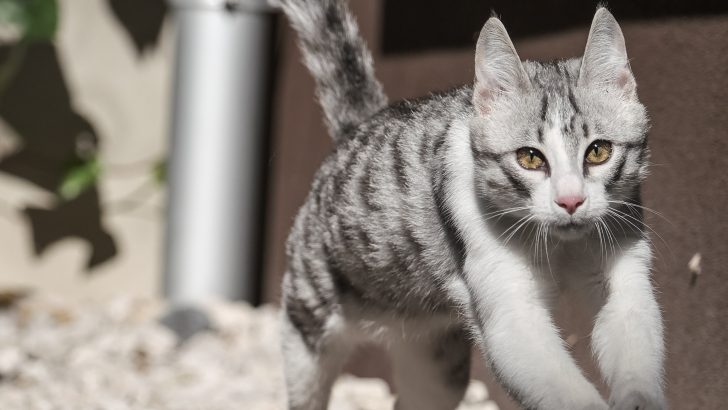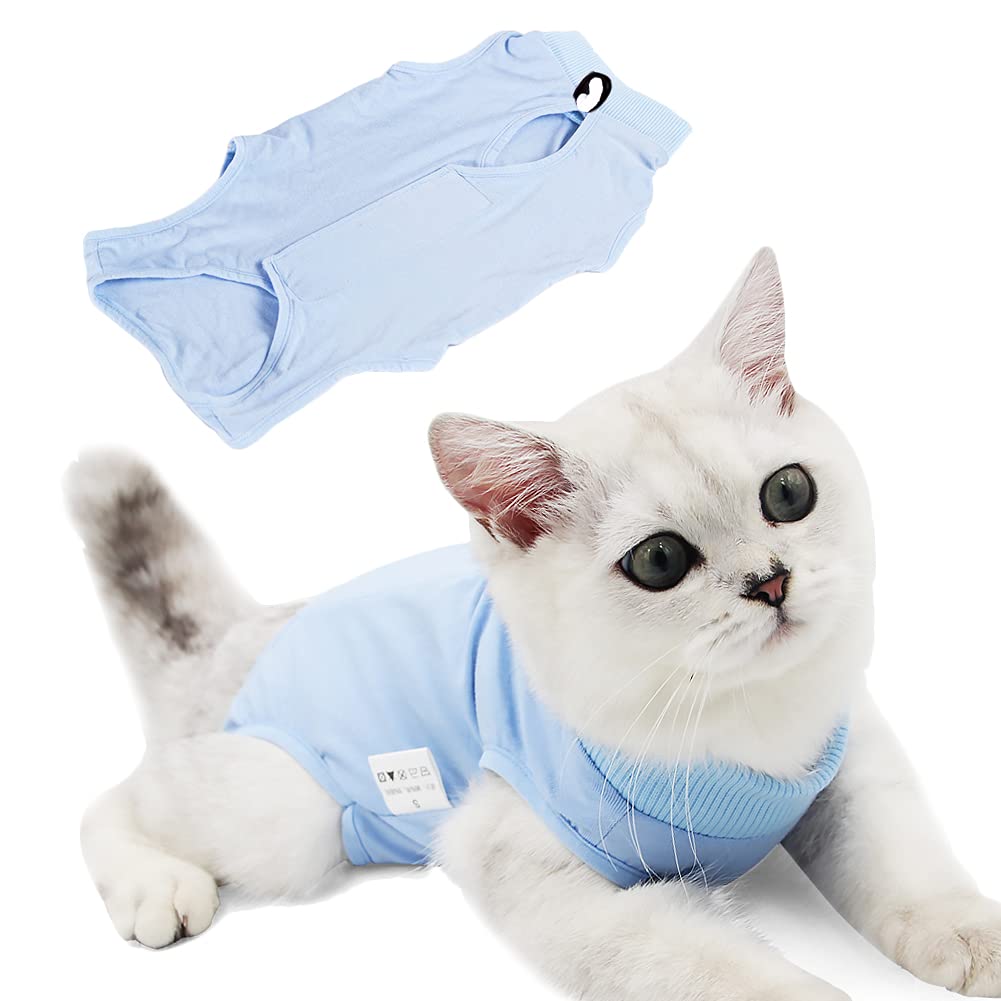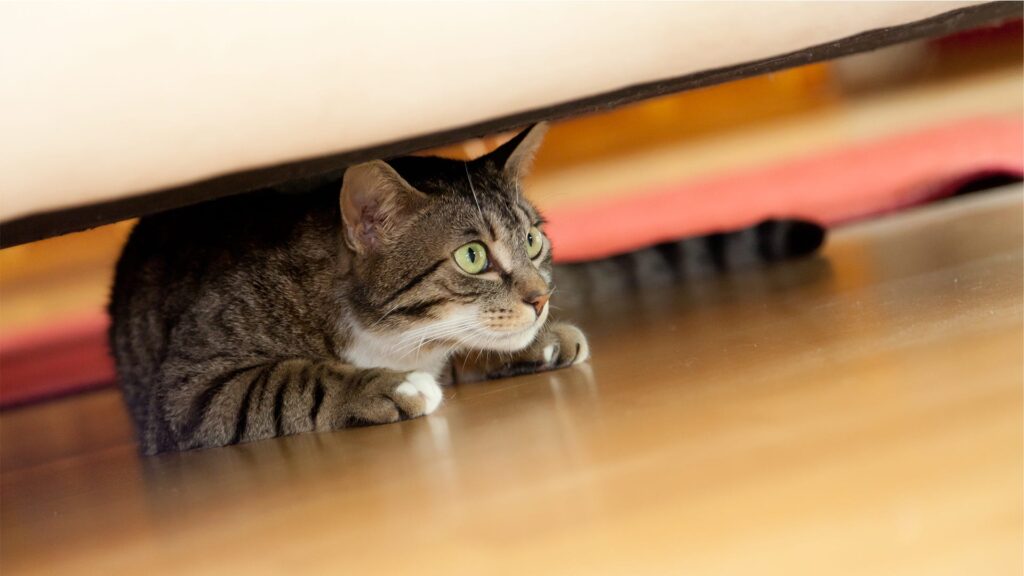Vicks is not safe for cats, and it should not be used near them due to potential harm it can cause. Using Vicks near your furry friend can be unsafe and harmful for them.
Cats are known to be sensitive to certain chemicals, and the ingredients in Vicks, such as camphor and eucalyptus oil, can be toxic to them. Ingesting or inhaling these substances can lead to adverse reactions, including gastrointestinal upset, respiratory distress, and even liver damage.
Vicks also contains menthol, which is another ingredient that can be harmful to cats. Therefore, it is best to keep Vicks out of reach of your furry companions and resort to other safe alternatives for their health and well-being.
Contents
- 1 What Is Vicks?
- 2 Common Uses Of Vicks
- 3 Potential Risks For Cats
- 4 Cats And Essential Oils
- 5 Understanding The Ingredients Of Vicks
- 6 Toxicity Symptoms In Cats
- 7 Safer Alternatives For Cats
- 8 When To Seek Veterinary Care
- 9 Tips For Keeping Cats Safe
- 10 Frequently Asked Questions For Is Vicks Safe For Cats? Should You Use It Near Your Fluff?
- 11 Conclusion
What Is Vicks?
Vicks is a popular brand that offers a range of over-the-counter medications. It is commonly used to provide relief from symptoms of cold, congestion, and cough. Vicks products often contain menthol, eucalyptus oil, and camphor as active ingredients, which are known for their cooling and soothing effects.
When used as directed, Vicks can be safe for humans. However, it is important to note that Vicks should not be used near cats without consulting a veterinarian. Cats possess a heightened sensitivity to certain substances, including essential oils like eucalyptus and camphor, which can be found in Vicks products. These ingredients may cause adverse reactions in cats, such as respiratory distress or skin irritations.
If your cat is experiencing respiratory issues or respiratory distress, it is best to consult a veterinarian for appropriate treatment options. They can provide guidance on safe alternatives that are specifically formulated for feline use. The well-being and safety of your furry friend should always be a top priority.

Credit: www.rocklandvet.com
Common Uses Of Vicks
While Vicks is commonly used by humans for various purposes, it is essential to be cautious when using it around cats. Vicks contains camphor, menthol, and eucalyptus oil, which can be harmful to cats if ingested or inhaled in large amounts. It is important to note that cats are more sensitive to these ingredients than humans.
Cats should never be directly exposed to Vicks products, such as Vicks VapoRub or Vicks inhalers. Ingesting or licking the product can cause digestive issues, respiratory problems, and even neurological symptoms.
While it is generally safe to use Vicks around your pets, it is advised to take necessary precautions. Keep Vicks products out of reach of your feline friend and avoid using it directly on them. Additionally, ensure proper ventilation if you are using Vicks near your cat to minimize their exposure to the strong smell. It is always recommended to consult with a veterinarian before using any over-the-counter human medications or products on your pets.
Vicks is widely used by humans to provide relief from various conditions such as:
| Uses | Description |
|---|---|
| Cough Relief | Vicks VapoRub is often applied topically to the chest or throat to help relieve cough symptoms. |
| Nasal Congestion | Vicks inhalers or vaporizers can help clear nasal passages and alleviate congestion. |
| Muscle Aches | Applying Vicks to sore muscles can provide a soothing sensation and temporary relief. |
| Headaches | The cooling effect of Vicks when applied to the temples may help relieve headaches and migraines. |
Remember to always prioritize the safety and well-being of your furry friends and consult with a professional before using any products near them.
Potential Risks For Cats
Vicks may not be safe for cats as it can contain ingredients that can be harmful to them. It is important to avoid using it near your furry friend to prevent potential risks to their health.
If you are a cat owner, you might be wondering if it is safe to use Vicks near your beloved feline friend. While Vicks VapoRub is generally considered safe for humans and is commonly used for congestion relief, it can pose potential risks for cats. One of the main ingredients in Vicks is menthol, which can cause irritation and even toxicity in cats if ingested or applied directly on their skin. Cats are highly sensitive to certain substances, and even small amounts of menthol can lead to adverse reactions.
Furthermore, the strong scent of Vicks can be overwhelming for cats, and they may develop respiratory issues or difficulty breathing when exposed to it. Ingestion of Vicks can also lead to gastrointestinal problems, as some of the ingredients are not suitable for feline consumption. Therefore, it is important to keep Vicks and similar products out of reach of cats, and avoid using them in their vicinity to ensure their safety and well-being.
Cats And Essential Oils
Cats are known for their sensitivity to certain substances, including essential oils. Unlike humans, cats lack certain enzymes in their liver that help metabolize and break down certain compounds, making them more susceptible to the toxic effects of these substances. Essential oils, such as those found in Vicks VapoRub, contain compounds that can be harmful to cats if ingested or inhaled in large quantities. Cats are particularly sensitive to phenols, which are found in many essential oils and can cause liver damage. Additionally, cats have a heightened sense of smell and can be easily overwhelmed by strong scents. Therefore, it is important to be cautious when using Vicks VapoRub or any other essential oils around cats. Avoid applying it directly to their fur, as they may ingest it while grooming themselves. Instead, consider using alternative remedies or consult with a veterinarian for safe alternatives for your feline friend.
Understanding The Ingredients Of Vicks
Vicks Vapor Rub is a popular product used for relieving congestion and cough caused by cold or flu. While it is deemed safe for humans, pet owners should exercise caution when using it around cats. It is crucial to comprehend the ingredients in Vicks and their potential impact on our feline friends.
| Ingredient | Potential Impact on Cats |
|---|---|
| Petroleum Jelly | Generally safe unless ingested in large amounts, which may cause gastrointestinal issues. |
| Camphor | Highly toxic to cats and can lead to seizures, liver damage, and even fatality. Cats should not come into direct contact with products containing camphor. |
| Eucalyptus Oil | Can cause gastrointestinal upset in cats if ingested, leading to symptoms such as vomiting or diarrhea. |
| Menthol | Exposure to menthol can irritate a cat’s respiratory system and cause breathing difficulties. |
| Thymol | Thymol, found in some Vicks products, can also be toxic to cats if ingested in large amounts. |
It is essential to keep Vicks and similar products containing these ingredients out of a cat’s reach. If your cat accidentally ingests or comes into contact with Vicks, it is crucial to seek immediate veterinary advice. Always consult with your veterinarian before using any products near your cat to ensure their safety and well-being.
Toxicity Symptoms In Cats
Is Vicks Safe For Cats? Should You Use It Near Your Fluff?
List the potential symptoms of toxicity in cats caused by Vicks exposure
Exposing your feline friend to Vicks can lead to a range of toxicity symptoms. Keep an eye out for the following signs which may indicate your cat has been affected:
- Salivation: Excessive drooling may occur if your cat has ingested or come into contact with Vicks.
- Vomiting and diarrhea: These gastrointestinal symptoms are common in cats exposed to Vicks.
- Difficulty breathing: Cats exposed to Vicks may experience respiratory distress or develop coughing and wheezing.
- Weakness and lethargy: Your cat may display a lack of energy and have difficulty moving or engaging in usual activities.
- Tremors and seizures: In severe cases of Vicks toxicity, cats may exhibit tremors or have seizures, requiring immediate veterinary attention.
If any of these symptoms are observed, it is crucial to seek veterinary care promptly. Remember, prevention is key, and it’s best to keep Vicks products away from your beloved feline to ensure their safety and well-being.
Safer Alternatives For Cats
When it comes to the safety of our beloved feline friends, it’s important to be cautious about the products we use around them. While Vicks Vaporub may provide relief for humans, it can be harmful to cats if ingested or applied directly to their skin. Cats have a unique physiology, and certain ingredients in Vicks, such as camphor and menthol, can be toxic to them.
Fortunately, there are safer alternatives available for cat owners. Instead of using Vicks, consider using natural remedies like eucalyptus essential oil or chamomile-infused steam. These alternatives can provide similar soothing effects without posing a risk to your furry companion. Additionally, keeping your cat’s environment clean and free of irritants can help alleviate respiratory issues.
| Safe Alternatives for Cats | Usage Instructions |
|---|---|
| Eucalyptus Essential Oil | Add a few drops to a diffuser or mix with water for a gentle spray |
| Chamomile-Infused Steam | Boil water, add chamomile flowers, and let the steam fill the room (ensure your cat is comfortable and not exposed directly to the steam) |
By opting for these safer alternatives, you can provide your cat with relief without compromising their health. Remember to always consult with a veterinarian before using any new product or remedy on your cat.
When To Seek Veterinary Care
If your cat has been exposed to Vicks, it is crucial to observe their behavior and monitor for any signs of distress. Cats can have different reactions to certain substances, and Vicks contains ingredients that can be harmful if ingested or inhaled. If you notice any of the following symptoms, it is recommended to seek immediate veterinary care:
- Lethargy or unusual drowsiness
- Excessive salivation
- Vomiting or diarrhea
- Difficulty breathing
- Tremors or seizures
- Loss of appetite
These symptoms could indicate a potential toxicity or adverse reaction to Vicks. It is important to remember that cats have unique sensitivities, and even a small amount of exposure can cause serious health issues. If you suspect your cat has come into contact with Vicks or any other potentially harmful substance, contacting your veterinarian is the best course of action to ensure your furry friend’s well-being.
Tips For Keeping Cats Safe
Cats are curious creatures and can easily get into trouble if exposed to harmful substances. When it comes to using Vicks around your feline friend, it’s essential to exercise caution. Although Vicks is generally safe for humans, it contains several ingredients that can be toxic to cats, such as camphor and eucalyptus oil. These substances can cause various health problems for your cat, including vomiting, drooling, and difficulty breathing.
To ensure your cat’s safety, it’s important to keep Vicks and other potentially hazardous products out of reach. Store them in a secure place where your cat cannot access them. If you are using Vicks on yourself, be mindful of your cat’s proximity and avoid applying it near their face or in areas they frequently groom. If you suspect your cat has come into contact with Vicks or any other toxic substance, monitor their behavior closely and seek veterinary attention immediately if any unusual symptoms arise.
In addition to Vicks, there are many other common household items that can pose a risk to cats. These include certain plants, cleaning products, medications, and even certain foods. It’s crucial to familiarize yourself with these potential hazards and take necessary precautions to keep your feline companion safe. By being proactive and vigilant, you can ensure a safe environment for your beloved fluff.
Frequently Asked Questions For Is Vicks Safe For Cats? Should You Use It Near Your Fluff?
Can You Use Vicks Vaporub Around Cats?
Vicks VapoRub should not be used around cats. Its strong smell and ingredients like camphor can be harmful to cats if inhaled or ingested. It’s best to keep Vicks VapoRub out of reach from cats to ensure their safety.
Can Cats Lick Vicks Vapor Rub?
Vicks vapor rub should not be licked by cats as it contains ingredients, like menthol and camphor, that can be harmful to them if ingested. It’s best to keep these products out of their reach to avoid any potential health risks.
Is Menthol Safe For Cats To Breathe?
Menthol is not safe for cats to breathe. It can cause respiratory issues and discomfort.
Is Vicks Safe For Cats?
No, Vicks is not safe for cats. It contains ingredients like menthol and eucalyptus oil that can be toxic to cats if ingested or applied topically. Inhaling Vicks can also cause respiratory issues in cats. It’s best to avoid using Vicks near your furry friend to keep them safe and healthy.
Conclusion
It is crucial to consider the potential risks before using Vicks near your furry friend. While the product may offer relief for humans, it can have adverse effects on cats due to their sensitive respiratory systems. It is always advisable to consult with a veterinarian before using any product on your pets to ensure their safety and well-being.
Remember, your cat’s health should always be a top priority.
Katie Lindsey is a passionate cat lover and founder of Cats Solution, a comprehensive resource for all things feline. With a lifelong love for cats and extensive knowledge in their care and behavior, she provides expert advice and solutions to cat owners. Through her website, Katie fosters a supportive community where cat enthusiasts can find guidance and heartwarming stories. A dedicated advocate for animal welfare, Katie also promotes responsible pet ownership and adoption. Join her on this purr-fect journey celebrating the joy of feline companionship.



